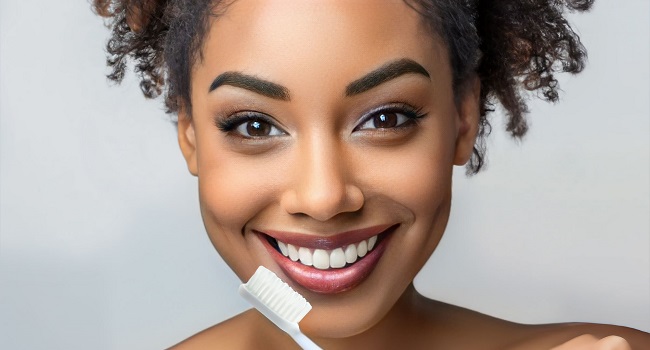Your smile is among the first things people recognize about you. That’s why it’s crucial to maintain the look of your teeth. In modern society, the appearance of your teeth says more about who you are. It denotes aspects of your identity, such as your economic status, health, and hygiene. For instance, a whiter, brighter smile signifies good health, beauty, and wealth. A yellowed or discolored smile is often associated with low self-esteem and poor economic status.
Fortunately, many teeth whitening treatment options are available to treat yellow teeth. These options include over-the-counter treatments like whitening toothpaste, strips, gels, trays, and in-clinic treatments such as bleaching and UV light therapy. However, so many options make choosing the proper treatment for you challenging. This article discusses the factors to consider when selecting a tooth whitening treatment.
Sensitivity
Sensitivity is a crucial factor to consider when choosing a teeth whitening treatment. Some individuals with existing dental issues experience discomfort or sensitivity after teeth whitening treatments. Therefore, opt for gentle treatment if you have sensitive teeth or gums. Some over-the-counter treatments like whitening strips and gels can cause irritation and sensitivity, so choose products designed for sensitive teeth.
Alternatively, you can visit a dental clinic such as Smiles on Queen for teeth whitening treatment tailored to your needs. For instance, dentists can design your products with fewer whitening agents that cause sensitivity. Also, the dentist may apply a protective gel to your teeth and gums to reduce sensitivity.
Treatment Cost
Treatment cost is another significant consideration when selecting a tooth whitening option. Start by creating a budget to decide how much you’ll spend on the treatment. However, remember that the cheapest option isn’t always the best.
Generally, over-the-counter treatments are cheaper than professional treatments but may produce different outcomes. Over-the-counter treatments require weeks of consistent use to achieve the desired results. On the other hand, in-clinic treatments have better and longer-lasting results. They are completed faster, making them more convenient for people with busy schedules.
The Type Of Teeth Stains
Different stain types require different teeth whitening treatments. Therefore, identifying the type of stain is crucial in determining the proper treatment for you. Teeth stains are classified into intrinsic, extrinsic, and age-related. Intrinsic stains occur inside your teeth. They are caused by injury, trauma, tooth decay, and certain medications. Extrinsic stains appear on the teeth’s outer layer and are caused by smoking, drinking tea, coffee, and red wine. On the other hand, age-related stains are a combination of intrinsic and extrinsic causes.
Teeth whitening treatments work differently based on the type of stain. Over-the-counter treatments with hydrogen peroxide or high concentrations of whitening agents can be effective for extrinsic stains. However, these treatments may not work for intrinsic and age-related stains, and in-office options such as veneers and bleaching may be necessary.
Severity Of Teeth Stains
The extent of teeth stains is among the essential factors for choosing a teeth whitening treatment. The degree of discoloration impacts the effectiveness of whitening treatments. Moreover, different whitening treatments are suited to cater to various staining levels.
For instance, if the stains are minor, over-the-counter treatments such as whitening toothpaste or strips can get the job done. However, if the stains are moderate to severe, in-office treatments such as bleaching may be required. These treatments use high concentrations of whitening agents such as hydrogen peroxide for effectiveness. For safety reasons, the treatments should be applied under the supervision of a dentist.
Generally, before choosing a tooth whitening treatment option, consult your doctor to determine the severity of the stains. It helps the dentist assess your condition and recommend the best treatment to achieve the desired results.
Your Oral Health
Your oral health is crucial when choosing a tooth whitening treatment. Teeth whitening products can cause discomfort and irritation, especially in individuals with underlying dental issues. Therefore, if you have dental problems like tooth decay and gum disease, treat the issues first before teeth whitening treatments. In such cases, you must consult your dentist on the best action.
Moreover, practicing good oral hygiene before, during, and after teeth whitening treatments is essential to maintaining oral health. Proper oral hygiene practices include brushing and flossing daily and regular dental cleanings and checkups.
Your Personal Preference
Different teeth whitening treatments have various ingredients, methods, and results; what may work for another person may not work for you. Therefore, go for what aligns with your personal preference.
For instance, some individuals prefer in-office teeth whitening treatment because it’s more effective and faster. Others prefer at-home teeth whitening kits because they’re convenient and can be done anywhere. Finally, some people prefer over-the-counter teeth whitening because it’s a cheaper and gentler treatment. Whatever your preference, ensure you discuss it with your dentist to determine if it meets your needs.

The Bottom Line
The correct teeth whitening treatment can make a significant impact on your smile. Therefore, incorporate the above factors to choose a treatment option that suits your needs. However, if you still find it challenging, talk to an expert for more insights.
















